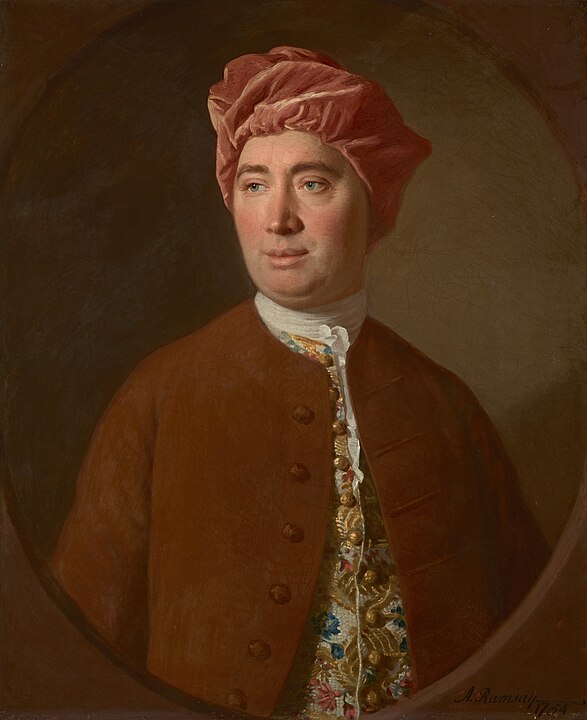David Hume (1711-1776) was a prominent Scottish historian and philosopher who was well known to the American Founders. Part of the Scottish common sense school of philosophy, Hume put great emphasis on experience and scientific methods and was skeptical of speculative philosophy and the fanaticism that he associated with political and religious ideologies.
Hume praised power balance in government
Although some Founders thought that he was too supportive of the British monarchy, Hume actually praised the mixed government of Great Britain that balanced the power of the king or queen with republicanism, or popular rule. In his essay on the “Idea of a Perfect Commonwealth,” he described a government over a large land area that embodied a sufficient number of interests so that none of them could dominate. Historian Douglass Adair has persuasively argued that this essay influenced James Madison who argued in Federalist No. 10 (counter to the thoughts of the Baron de Montesquieu, which had been echoed by Anti-Federalists) that American democratic republican government over a large land area under the new Constitution could have a similar moderating effect on factions.
Hume's view on press freedom likely influenced American founders
It is likely that Hume’s views also influenced the development of freedom of the press as embodied in the First Amendment. In an essay entitled “Of the Liberty of the Press,” Hume observed that foreigners were surprised by “the extreme liberty” of the press within Britain, which permitted criticism of the monarch and his ministers in both times of peace and war and arguably bordered on “licentiousness.”
Attributing this liberty of the press to Britain’s mixed form of government, he noted that such liberty was especially important within Britain because it enabled the people to counter aggrandizement of the powers of the monarch. He argued that the liberty of the press allowed “all the learning, wit, and genius of the nation” to “be employed on the side of freedom and everyone be animated to its defense.” He even hazarded that “such a liberty is attended with so few inconveniences that it may be claimed as the common right of mankind and ought to be indulged them almost in every government except the ecclesiastical, to which, indeed, it would be fatal.”
In the events leading up to the American Revolution, it was clear that American colonists considered freedom of the press to be among the rights of Englishmen that they were free to exercise. They subsequently sought to preserve this right both within state declarations of rights and later in the Bill of Rights to the U.S. Constitution.
Hume favored press freedom over free speech
In a fascinating distinction, however, Hume, who had been disturbed by the tumult surrounding John Wilkes in England, elevated freedom of the press over that of freedom of speech, which the First Amendment would also later protect. He did so by distinguishing the effect of reading, which generally takes place in private and with greater leisure, than with oral speech, which has the greater capacity to incite individuals to more immediate violent actions.
In his words. “A man reads a book or pamphlet alone and coolly. There is none present from whom he can catch the passion of contagion. He is not hurried away by the force and energy of action. And should he be wrought up to never so sedition a humor, there is not violent resolution presented to him by which he can immediately vent his passion.”
Moreover, Hume argued that freedom of the press actually alerted governmental authorities of rising discontent before it broke out into violence.
Accepting existing laws against “sedition and libeling,” Hume opposed other licensing and censorship actions, even though he ultimately concluded that liberty of the press, which sometimes spread unfounded rumors, was something of a necessary evil rather than an unmitigated good.
John Vile is dean of the Honors College at Middle Tennessee State University and a history professor. He has written extensively about constitutional issues, including the First Amendment.

